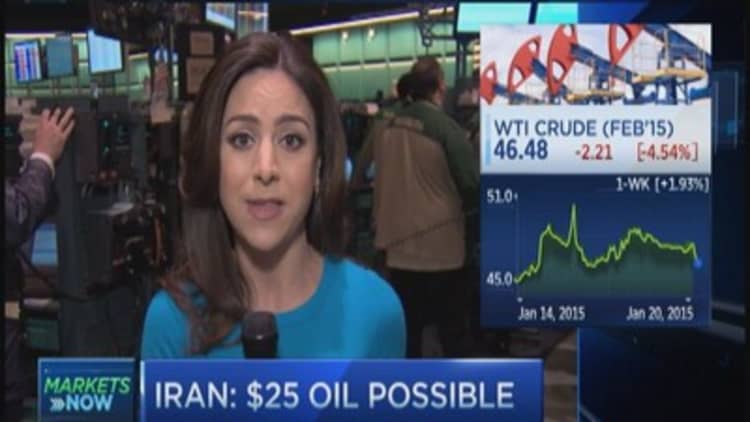A top scientific publication moved the hand of its famous Doomsday Clock up two minutes on Thursday to a symbolic position of three-minutes-to-midnight, warning that "the probability of global catastrophe is very high" if the global community does not take immediate steps to curb both the threat of climate change and out-of-control spending on nuclear weapons.
The Bulletin of Atomic Scientists, which was created in 1945 by scientists who developed the atomic bomb while researchers for the Manhattan Project, first debuted the Doomsday Clock in 1947 on its magazine cover to alert the public about the dangers of nuclear proliferation. Since then, it has ranged from two minutes before midnight in 1953 to 17 minutes before midnight in 1991.
The last time the clock was at three minutes to midnight was in 1983, in the depths of the "iciest" relations between the United States and the Soviet Union.
Read MoreOil fields at risk: Where the slowdown has begun
Once again, the BAS is concerned about conflict with Russia and the amount of money nuclear powers are spending on their arsenals, after years of cautious optimism that world governments were pulling back on nuclear spending.
"The disarmament process has ground to a halt, with the United States and Russia embarking on massive programs to modernize their nuclear triads—thereby undermining existing nuclear weapons treaties—and other nuclear weapons holders joining in this expensive and extremely dangerous modernization craze," said the BAS board in a statement.

The group is also troubled by the planet's warming climate and is calling on world leaders to take steps to keep global temperatures from rising more than two degrees Celsius above their pre-industrial levels. The potentially catastrophic effects of rising sea levels were an area of particular concern, the Bulletin's editor-in-chief John Mecklin told CNBC.
"These are the problems you cannot ignore," Mecklin said. "There are certain types of problems that, while troubling, are not a threat to humanity's survival. That is not what we have here. If you don't address nuclear and climate problems, eventually civilization will be threatened."

The decision to move the minute hand is made by the Bulletin's Board of Directors in consultation with its Board of Sponsors, which includes 18 Nobel Laureates.
Read MoreThis currency war cannot go well: Art Cashin
Mecklin warned that the Bulletin's Science and Security Board considered the move very carefully.
"These are top scientists, they don't move the hands of the doomsday clock easily or lightly," he said. "The fact that they moved it two minutes closer means that they see a real danger a real need to act now."


